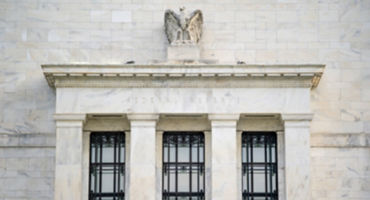We believe higher-quality loan issuers with floating-rate capital structures can withstand higher interest expenses.
Since bank loans have floating-rate coupons, many issuers of such loans are naturally at risk of incurring higher financing costs (interest expenses) amid rising short-term interest rates. Yet, we believe many issuers can withstand this not-insignificant headwind because most are starting from very strong positions in terms of their liquidity levels, debt servicing abilities, and extended maturity schedules, potentially enabling them to bear the pressure of rising interest expense costs.
We recently performed a sensitivity analysis of the leveraged loan market (Figure 1) and concluded that many loan issuers’ interest-coverage ratios can likely withstand further increases in three-month LIBOR. (Currently, the futures market is pricing in an additional 150 – 175 bps of Fed rate hikes.) Under this scenario, even if the EBITDA (earnings before interest, taxes, depreciation, and amortization) of bank loan issuers declines by 20%, their interest-coverage ratios should still remain above 2.0x. In general, we believe such coverage ratios are sufficient to service the debt on most issuers’ balance sheets.
Bottom line: Broadly speaking, we believe the bank loan market, particularly higher-quality issuers, will be able to overcome the challenge associated with higher interest rates.














